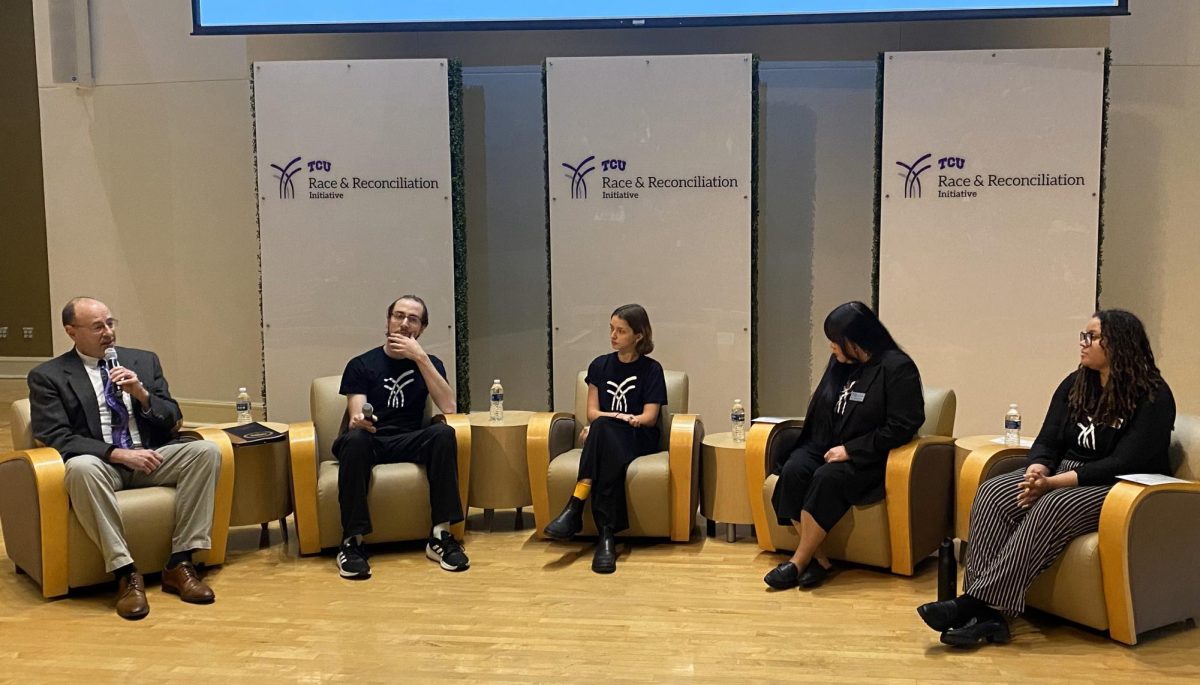I am writing in response to the article “Group pushes coffee campaign further” in the TCU Daily Skiff on March 8, 2006. Frogs for Fair Trade appreciates the recent coverage of our cause. However, we were upset to see that there were certain misconceptions about Fair Trade that the article treats as facts. Not only is Fair Trade not a brand, it will not destroy the Jazzman’s brand or cause Jazzman’s to go out of business.Fair trade is a certification put on products – coffee, tea, chocolate, cheese and bananas to name a few – by TransFair USA. This certification shows that the product you are buying has been created in an environmentally friendly way that offers small-scale coffee farmers a fair price for their goods, almost like the minimum wage enforced for jobs in the United States. When consumers buy organic foods, they are not buying a brand, but a type of food, certified by the United States Department of Agriculture. Similarly with fair trade coffee, tea, and other products, people are buying a product that has been certified by TransFair USA. Fair trade is a certification not a brand.
While Fair Trade can cost more than regular coffee, most brands that are certified do not. Currently at Jazzman’s, the fair trade certified drip coffee is the same price as the regular drip coffee. The March 8 article discusses the current profits of Jazzman’s:
“Jazzman’s makes approximately $16 from fair trade coffee each day, while it earns $180 from regular coffee.”
It should be noted that Jazzman’s currently offers fair trade certified coffee only as a drip coffee; it cannot be put in the popular “fancy” coffee drinks using espresso or iced coffee. Considering this, it is impressive that fair trade certified coffee accounts for approximately 8 percent of Jazzman’s daily profit. Let’s give Jazzman’s some credit. It is a business. It would not consider switching to a fair trade certified coffee brand if it thought it was going to put it out of business. If Jazzman’s were to carry a full line of fair trade certified coffee, it is highly unlikely that it would go out of business because students would buy coffee just as they do now. Its sales may even increase because most customers are likely to buy a product when they know their money is not only appeasing their caffeine addiction, but also helping people out.
Some people feel very far removed from the plight of these farmers. It is hard to comprehend the poverty of the rest of the world when most Americans have homes, jobs, cars, computers, etc. It is hard to find the motivation to find ways to help because it takes effort and sometimes a little extra money – money that we here at TCU can all afford to part with. Many people donated blood when Carter BloodCare came to campus this week. Students said they wanted to do something good and make a difference. This was a shared attitude across campus, the desire to help others and do something good. Supporting fair trade certified coffee, tea, and other products on campus, whether in Frog Bytes or in Jazzman’s, is another way to do this. Buying fair trade coffee is not hurting anyone; it is not putting Jazzman’s out of business and it is not taking away the prestige of other brands. It is helping poor, starving, exploited farmers feed their families and invest in their communities and futures.
Kelly Hanson, freshman, co-programming coordinator for Frogs for Fair Trade




